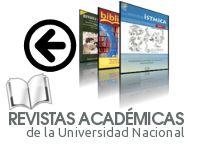Derechos humanos y construcción de ciudadanía en la escuela. Una propuesta para construir democracia participando en la actividad sociocultural
Palavras-chave:
autoridad democrática, diálogo horizontal, ciudadanía activa, talleres pedagógicos.Resumo
Resumen
Este trabajo pretende ser un instrumento de reflexión sobre el rol histórico de la autoridad en el aula. El supuesto es que los períodos autoritarios han dejado huellas en las cosmologías docentes y por ello el autoritarismo se resiste a partir. Esto último impide enfatizar en actitudes y acciones didácticas de tipo cooperativo; invisibilizando derechos fundamentales, principalmente aquellos referidos en la infancia y adolescencia. Se hace hincapié en la participación democrática de docentes y estudiantes, enfatizando en la exaltación de un tipo de socialización enmarcada en la participación democrática desde la escuela, que pueda aportar hábitos trasladables a otros ámbitos sociales, contribuyendo a formar actitudes deliberativas, necesarias para participar activamente. El marco utilizado es, en el caso de las teorías del aprendizaje y como soporte metodológico, el principio de Zona de Desarrollo Próximo (Vigotsky) y el supuesto de aprendizaje práctico/participativo (Rogoff), además de brindar algunas concepciones sobre filosofía política en educación (Gutman).
Respecto al marco normativo, se presta atención al cuerpo jurídico internacional sobre derechos humanos poniendo énfasis en la esfera de la educación, las recientes leyes argentinas de educación (2006) y de protección de la infancia y la adolescencia (2006).
Palabras clave: autoridad democrática, diálogo horizontal, ciudadanía activa, talleres pedagógicos.
Abstract
This work aims to be an instrument of reflection on the historical role of authority in the classroom. The assumption is that authoritarian periods have left footprints in the cosmologies of teacher, hence authoritarianisms resists to leave. This prevents the emphasis on didactic cooperative attitudes and actions, thus
subduing fundamental rights, mainly those referred to infancy and adolescence. The teachers´ and students´ democratic participation is emphasized, remarking the exaltation of a kind of socialization framed by the democratic participation from the school, which can bring habits transferable to other social areas, facilitating the development of the deliberative attitudes needed to participate actively. The theoretical framework is, in the case of learning theories and as a methodological support, the principle of Near Area Development (Vigotsky) and as the second argument, we use the assumption of learning by doing/participatory (Rogoff). In the first case, a task that is done with help today will be autonomously tomorrow. For the latter, it means participatory activities in order to achieve habits that may relocate to other social environments. In the case of Guttmann, it is looking for framing issues of political theory of education, mainly those related to the new skills a twenty-first century citizenship must acquire. Regarding the regulatory framework, attention is paid to international norms on human rights with emphasis on education, recent Argentinean education laws (2006) and new laws on childhood and adolescence protection (2006).
Keywords: democratic authority, horizontal dialogue, active citizenship, pedagogical workshops.
Downloads
Publicado
Como Citar
Edição
Seção
Licença
El material que se publica en esta Revista está bajo una licencia “Creative Commons” 3.0 Costa Rica (CC, Reconocimiento-NoComercial-SinObraDerivada 3.0 Costa Rica (CC BY-NC-ND 3.0 CR) . Esto significa que el material publicado en la revista se puede compartir (copiar y distribuir) en cualquier medio o formato considerando que se debe reconocer de forma adecuada la autoría del material y la fuente, no puede utilizarse con fines comerciales y no se aceptan las obras derivadas (remezclar, transformar o crear a partir del material).








